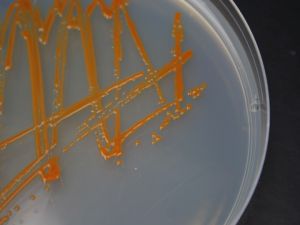In recent decades the marine ecology paradigms have changed due to a surprising discovery: more than half of non-photosynthetic marine microorganisms are able to capture energy from sunlight using a single protein called rhodopsin. Since that discovery, many studies on diversity, physiology and ecology of these denizens of the sea have accumulated.
Now, for the first time, an article collects and organizes all these previous studies to put in value the role of rhodopsin in biology and bring to light the possibilities offered by this protein that, until recently, was largely unknown. The study has been recently published in the journal Microbiology and Molecular Biology Reviews.
"It's not just an exception. Rhodopsin appears to be present in more than half of heterotrophic bacteria living on the surface of the oceans", says Carlos Pedrós-Alió, researcher at the CNB-CSIC and one of the authors for this study.
.

He who seeks, finds
The presence of the protein among marine microorganisms is so high that changes all previous estimations of carbon and energy fluxes. "Until now, all biology studies had ignored this unconventional input of solar energy", says the researcher.
The review shows that the protein is highly conserved and present in the three domains of the tree of life (archaea, bacteria and eukaryotes). Thanks to the rhodopsin these organisms are able to use the sun's energy to move, grow and survive in the absence of nutrients
"Writing this study has opened our eyes –Pedrós-Alió explains–. Bring together in a single article all the work done so far on this issue has allowed us, for example, to realize that the evolutionary origin of this protein is very old, prior to the separation between bacteria and archaea "
But rhodopsin not only profoundly influences the ecology of the sea, it has also shown great potential in biotechnology. One of the most impressive applications is optogenetics. This technique consists on introducing rhodopsin in neurons which become sensitive to light. Using this approach, some research has managed to inhibit seizures in rodents.
The authors of the study also emphasize that there are still unanswered questions and many members of this family of proteins remain to be discovered. "We do not know, for example, how these bacteria react to climate change or an atmosphere with an increasing CO2 concentration," says Pedros-Alio.
- Jarone Pinhassi, Edward F. DeLong, Oded Béjà, José M. González, Carlos Pedrós-Alió. Marine Bacterial and Archaeal Ion-Pumping Rhodopsins: Genetic Diversity, Physiology, and Ecology. 2016. 80 (4): 929-954. Microbiology and Molecular Biology Reviews. doi:10.1128/MMBR.00003-16.







